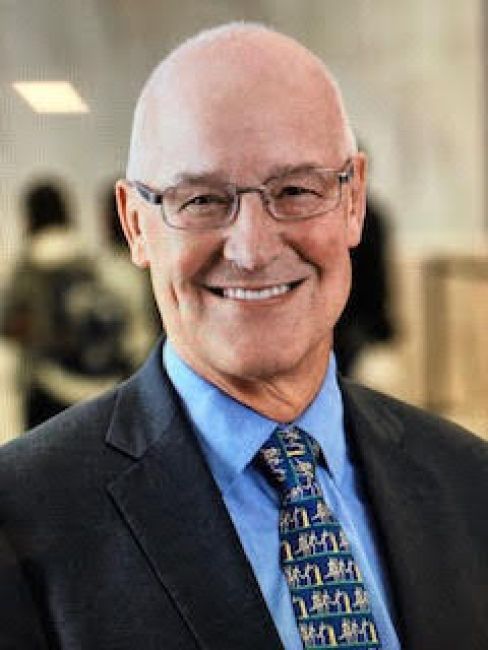
Andrew Hamilton served as the 16th President of NYU from January 2016 to June 2023. A noted chemist and Fellow of the Royal Society, he skillfully led NYU through the COVID-19’s challenges, ensuring fulfillment of the University's scholarly mission. During his presidency, applications for first-year admission came to exceed well over 100,000, leading to NYU’s most selective and diverse freshman classes. He slowed the growth of tuition, greatly enhanced financial aid, and enrolled the first entering classes for which NYU met demonstrated need. Under his leadership, NYU attained all-time highs in both national and international stature, surpassed $1 billion in research spending, appointed its first chief diversity officer, received almost $5.5 billion in philanthropic funding, exercised financial stewardship that resulted in budgetary surpluses each year, and opened major new academic facilities in Manhattan, Brooklyn, and Shanghai.
Before coming to NYU, Dr. Hamilton served as the vice chancellor of Oxford University—the university’s senior-most officer—a post he held since 2009. His tenure as vice chancellor was distinguished by significant improvements in university governance and faculty relations; the launch of a new School of Government and the expansion of the business school; the enhancement of interdisciplinary research and teaching; the restructuring of Oxford’s medical school and hospital into a modern academic medical center; and the improvement of the university’s physical infrastructure, among other initiatives. Before being named as Oxford’s vice chancellor, Dr. Hamilton served as provost (2004–08) of Yale University; he had previously been Yale’s deputy provost for science and technology. At Yale—where he joined the faculty in 1997—he was the Benjamin Silliman Professor of Chemistry and professor of molecular biophysics and biochemistry. Prior to joining Yale’s faculty, he was a tenured professor of chemistry and chair of the chemistry department at the University of Pittsburgh. Before joining the faculty at the University of Pittsburgh, he was an assistant professor of chemistry at Princeton University.
In addition to his record as an academic leader, Dr. Hamilton is an award-winning, widely published chemist, and he has continued to maintain his scholarly work—including an active research laboratory—while holding leadership positions. His area of scholarly interest lies at the intersection of organic and biological chemistry, with particular focus on the use of synthetic design for the understanding, mimicry, and potential disruption of biological processes. He is a Fellow of the Royal Society, a member of the American Academy of Arts and Sciences, a member of the American Association for the Advancement of Science, the recipient of the Arthur C. Cope Scholar Award from the American Chemical Society, and the winner of the International Izatt-Christiansen Award for Macrocyclic Chemistry.
President Emeritus Hamilton was born in 1952 in Guildford, Surrey, UK. He received a first class BSc from the University of Exeter, his master’s degree from the University of British Columbia, and his doctorate from the University of Cambridge. He did post-doctoral work from 1980-81 at the Université Louis Pasteur in Strasbourg under the direction of Nobel Laureate, Jean-Marie Lehn.